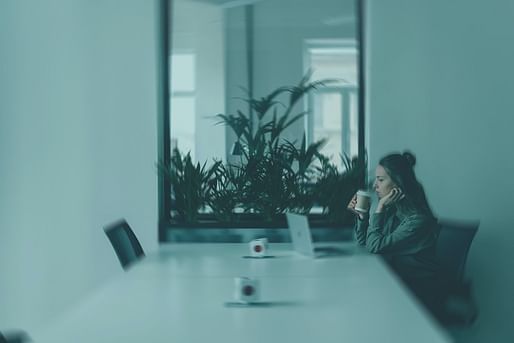
Architects are no strangers to burnout. In recent years, our editorial has explored the genesis of burnout in architectural circles by examining the impact of college studio culture as well as burnout and fatigue in the professional architectural workplace.
While burnout existed long before the COVID-19 pandemic, there is evidence that the upheaval of the past two years has further exacerbated an already fragile mental health landscape in the profession. In 2020, an Archinect survey of our community found that 43% of respondents were suffering from new mental health issues that they had not experienced before the pandemic, particularly anxiety, depression, and ADD.
Heightened anxiety in the workplace is a common symptom of burnout, according to neuroscientist and author Dean Burnett. In his new piece for the BBC’s Science Focus magazine, Burnett explores the onset of burnout during the pandemic, with similar findings to those voiced by our own survey. Examining data from US workplaces, Burnett notes a 9% increase in the number of employees experiencing burnout since the pandemic began.
“Burnout now affects over half the workforce,” notes Burnett. “Particularly younger employees, who have many more working years ahead of them; those closer to retirement, in more senior positions, with more savings, report less burnout. But even they’re feeling the pinch of the pandemic.”
In describing the causes of burnout in the workplace, Burnett identifies triggers that will be familiar to many in architectural settings. These include a loss of autonomy by being constantly beholden to the needs of clients and the impacts of wasted effort on a project.
“We have complex neurological systems that assess whether tasks are worth doing, compared to the potential reward they’ll produce,” Burnett explains. “Accordingly, if we put more effort in than the reward warrants, that can be a very stressful experience. Say you work for months on a project, only for a boss to suddenly cancel it on a whim. This induces considerable stress.” For architects, who often commit months or years to a project’s completion, the upheaval to project schedules, funding, and relevance during the pandemic, therefore, puts the profession at a heightened risk of burnout.

In an effort to alleviate burnout, Burnett sets out a portfolio of approaches. “The most obvious option is to try to change your work situation, by talking to superiors and addressing the issues that are causing you so much stress,” he notes while acknowledging that not all workplaces offer such resources. In this instance, Burnett recommends increasing non-work preoccupations such as hobbies, meditation, and seeking support from friends and family. “Ultimately, anything that reduces that stress, as long as it’s not harmful itself (for example, excessive drinking), can help prevent it,” he concludes.
Meanwhile, a specialist contributor with Burnett offers more direct advice: “Make sure you remember what it is that you used to enjoy doing before you seemingly worked all hours. Make an apple crumble. And be nice to people, goddammit!”
1 Comment
<me, crying> I feel so seen right now! I’m going to make an apple crumble tonight!
But seriously, this is an excellent article. I’m SO burned out.
Block this user
Are you sure you want to block this user and hide all related comments throughout the site?
Archinect
This is your first comment on Archinect. Your comment will be visible once approved.